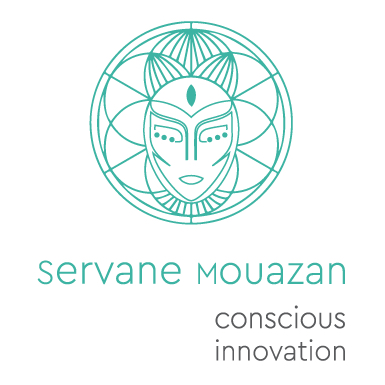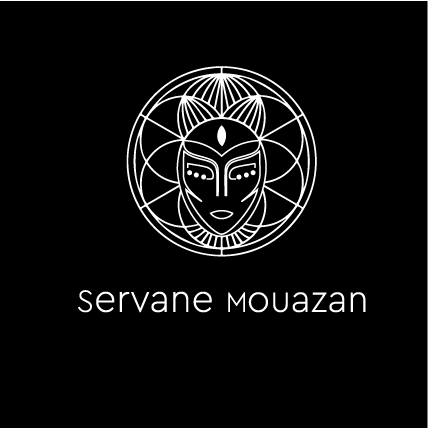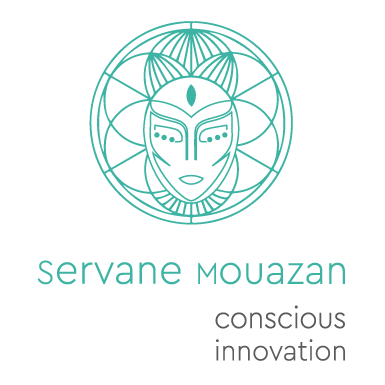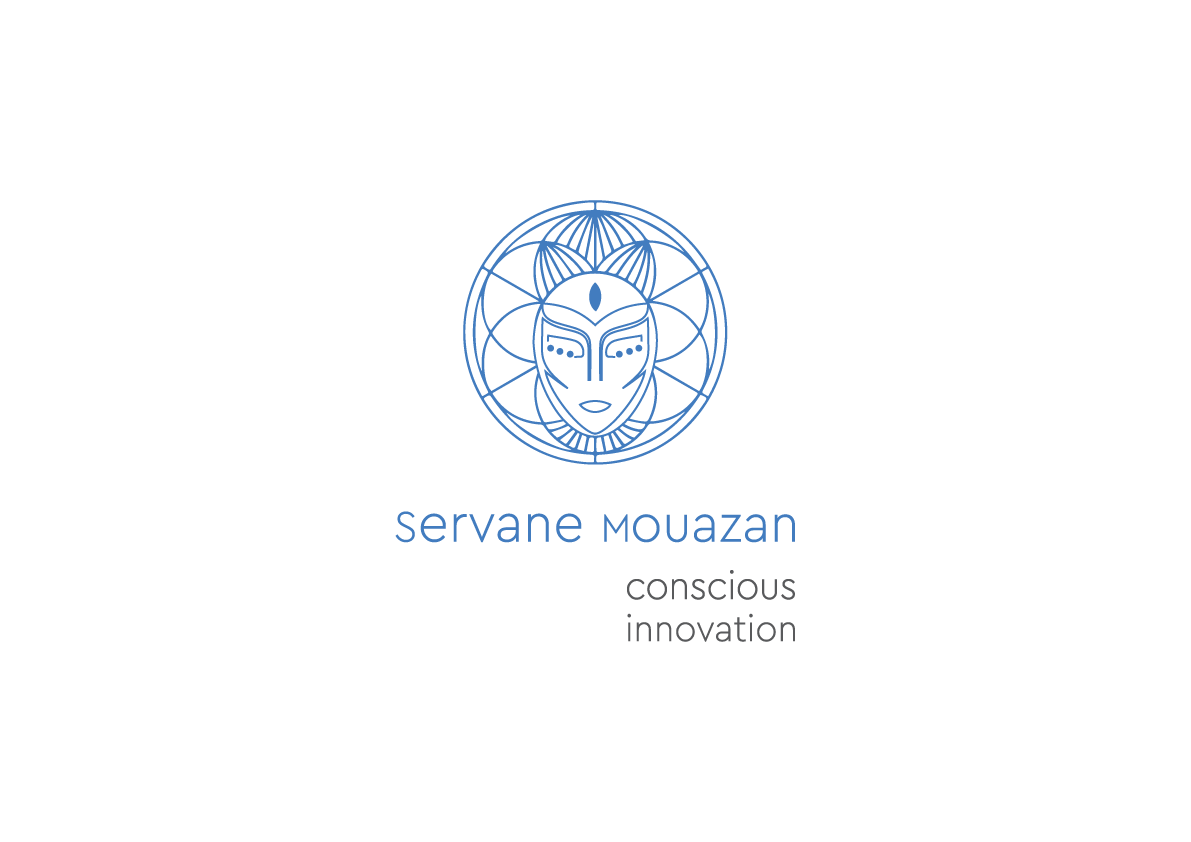From Loss to Agency: Investing in our Sustainable Future, with Amanda Latham
In this new episode of Be and Think In the House of Trust, I am listening to sustainable investment specialist and Board member Amanda Latham.
As the director of sustainable investment at IFM Investors and also a trustee at Age UK, Amanda shares her dedication and systems approach to learning about and contributing to the mitigation of the climate crisis, the resolution of thorny social issues, and decaying human rights.
She acknowledges the pushback to integrating sustainability into investment decisions and believes that humans have the capability to make changes for the future. But for that, you get to get involved. And it can be through various means.
This episode is for you if you are keen to influence and make an impact through boards, advocacy, and systems change.
Oh and… her secret? Long long walks at the sea with her dog…
Highlights in this episode:
(1:41) The value of volunteering
(4:51) Getting older is often about loss
(9:03) Hope versus pushback
(13:26) People have a right to expect to be able to breathe the air outside
(20:34) That Imagination point is key
Useful Links
Connect with Amanda https://www.linkedin.com/in/amanda-latham-10a69950/
Connect with Servane https://servanemouazan.co.uk
Subscribe to Conscious Innovation Updates http://eepurl.com/hp0h55
Transcript
Servane Mouazan 0:00
to the boardroom and your investment committees gathering today or next you have a senior leader who has two demeanour of a guitar hero who is grounded, mysterious but also has a great sense of humour. And you she also happens to be a specialist in all things around sustainable investment, which is good, but also ageing and pensions. So welcome to B and think in the house of trust. My name is Jehan was from conscious innovation. And in this series, I shared thinking moment with people who love to invest in social and environmental change. And we'll also explore the mental models and what it takes to do a better job at creating positive change. And my guest today is Amanda Lathan. She's the director of sustainable investment at IFM investors and also a trustee at Age UK.
Welcome
Amanda Latham 1:06
Hi, how are you doing?
Servane Mouazan 1:07
I'm very well thank you very pleased. Very pleased to welcome you in this house of trusts today. Most recently, you've been involved in convening people to tackle inequalities in pension outcomes in the UK. In the past, you've been a policy leader and shunt regulator you also trustee at Age UK is this something around a personal connection around the old age or mature age outside your own mortality that you feel mostly connected to?
Amanda Latham 1:35
Yeah, thanks. That's, like a really good summary. I think, partly, some of it. That's coincidence. So just like convenience, if that makes sense. So I ended up working at the pensions. regulator, just by chance because it was nearby where I was living in Brighton. And, you know, a role came up at a time when I left a previous role working into the waste management industry and yeah, just ended up moving into into the pensions area and then with AGK, that was I was doing my master's and I was doing a course on qualitative social research and I was looking for volunteering roles and there was a volunteer role in this sort of engagement team. So working, going into older people's homes and interviewing them about how they were engaging with services or like the health service or various other things in the in the city. And so I volunteered doing that for two years and then a role came up on the trustee board and by that time because I've been working at The Pensions Regulator for a couple of years and that really focuses on trustees and Trustee governance. I've been thinking how can I get in what you're more experienced have sort of exposure to boards and that kind of thing. So volunteer for the trustee role and started taking that on in 2018. So I've done that for a number of years now and
Servane Mouazan 2:56
and what did you most learn in your tenure during all that time?
Amanda Latham 3:02
So I think one of the main things is that people really bring different skill sets onto the board and, you know, that came through both in my board experience but also in my work at the regulator, Pensions Regulator. I did a number of research projects looking at different areas of governance. So we looked at defined contribution pension schemes, and the governance around those and then we also looked into trustees in sort of great detail over a number of years. And so that led me to get to sit in at board meetings that Trustee Board meetings and get to observe and that really helped me out when I then went to become a trustee of a charity because I'd seen issues sort of talked through in real life and seeing how people were able to bring their different knowledge and skills into discussions that the board would have to reach a conclusion and I know certainly with with my current Trustee Board at Age UK we've got people with really different experiences across sort of Adult Social Care and local authorities to NHS and then we've also got you know someone from from banking and you know someone else's or director of a company currently so that really brings different knowledge and experience and especially like weathering, different, you know, exogenous issues like economic conditions and things like that it can be really helpful to have all those different views brought forward to help, you know, support the management team, essentially because that's what we're there for.
Servane Mouazan 4:28
And what is it about age coming older that you most discovered, and that really informed the kind of work you do in general.
Amanda Latham 4:39
So I think, yeah, part of the real attraction I guess, of working with AGK is that you know, window into what older people are experiencing. And one of the things that I really learned early on was that you're getting older is often about loss. It can be loss of, you know, it can be people around you, but it can also be loss of like faculties, it can be impairments over time. It can be illnesses and things like that, you know, people do suffer a lot of loss. And so, part of thinking about how to help people is also how can you help them participate? How can you help them give, give back essentially as well rather than only you know, sort of be receiving things because it's something that you know about being a person is that having a purpose and having agency and being able to do things or choose to do things that you know, give you something as well as just, you know, being on the receiving end of things. So I think that was really important and has really helped me when I'm working on different issues, think about how you know what, what it is that you can, that what I'm doing, how that applies to sort of people's real lives and how that can help them and you know, what kind of things we can we can do in that space.
Servane Mouazan 5:54
So from loss to agency, and how does that connect with your current work and sustainable investment?
Amanda Latham 6:02
So I think it's, it's not as direct as when I was working at The Pensions Regulator, but of course, when we're working in sustainable investment, we look across, you know, a lot of different areas and different issues. Primarily, you might think about climate changes. That's very often on a lot of people's minds and on a lot of boards, agendas. But there's also social issues as well. Things like human rights, things about like workplace safety, and things like modern slavery that are becoming more and more important than coming up the agenda because of you know, this sort of legislative drivers as well.
Servane Mouazan 6:37
too. Wonder what is in the way of having sustainable investments that really, really achieved for the world to achieve.
Amanda Latham 6:48
So I think it's part of this is a really about integrating it into the investment process. So how do the sustainable investment teams work with the investment teams that alongside and how do those those relationships work? And how do we really embed those considerations in those investment decisions? So both the sort of initial decisions to deploy capital and then in terms of monitor monitoring and engaging with investing in companies over time, and how does that How did those outcomes get built into the investment process as well? So there's more and more sort of regulatory requirements in this space. There's more and more reporting and particularly disclosure around these activities. So there's more drive I think for the sentimental drive for disclosure, and you know, for a lot of the teams, that's things that are already happening, so now it's a matter of reporting on that and recording that and effective way. So I think things that are certainly in the European and UK space in particular I'm very much moving forward there. I think different jurisdictions have different regulatory frameworks, different approaches. And you probably have seen that in the US in particular has been quite strong pushback and some regulatory pushback in some states. So there's always I guess, push and pull in in any area and sustained investment, certainly, one that has grown in importance, but at the same time, as you know, those issues start to be unpicked, that results in I guess, the sort of political views are very much in the mix as well. And I think you know, more broadly, if we're thinking about things that are going on in in the sustainability space, you've got commitments on climate change commitments on biodiversity being made by governments across the world, and then there's going to need to be local policies put in place to to drive those commitments and to meet those commitments over time. So I think there's quite a lot of different things there that are making the area very important and leading to sort of a lot of growth in that area. And a lot more boards will be thinking about that or they'll have people on the board or maybe subcommittees or board structures like that, that are directly responsible for the sustainability activities and operations and implementation as well.
Servane Mouazan 9:03
So I'm going to when when we are picking up on the pushback here, how does it make you feel?
Amanda Latham 9:09
That's interesting. It's it's, I think it feels inevitable because with any kind of change if you look back over history, and I do spend quite a bit of time like listening to history podcasts, I found that quite interesting, especially the sort of new approaches to history where it's looking more at not just what the elites or leaders were doing, but looking at what regular people were doing or what what female people were doing in the past. And trying to dig into the broader more like the broader tapestry of what's been going on in the past. You can see that in went you know, whenever there's change that there's there's often been like reaction to that change and or another they either reaction to that change or another thing that can happen is that change is sort of captured by the people who are already doing quite well to prevent that change from seriously upsetting the system as it were. But you can also see that over time that the systems that we operate under and the things that we believe in, have changed significantly as well. So I think that gives hope that over time, we can make those changes to the system that will enable people to thrive and grow prosperity without potentially you know, being excessively extractive or not, not being imbalanced with with nature and with the climate. So I think those are outcomes that you know, a lot of people think of positive things but then I guess other people may see that as a threat or frame that as a threat because of certain activities or outcomes that they particularly attached to.
Servane Mouazan:I've noticed when I'm in a new and are the only one when people pronounce the word hope there's a witch in a face or a little pause just before as if we had to almost give ourselves the permission to hope. What are your thoughts?
Amanda Latham:I think that's the broader sort. of like a cultural place that we're in that the moment I think if you look back over the 20th century, I know when you've had significant changes and you know, you've had growth of lots of welfare state after the Second World War and new consensus in Europe and globally and you've had new global trade open up, you've had the new treaties between different countries, and more and more interconnectedness. And there was very much I think that you know, you've had the social movements as well. You've had civil rights movement. You've had movements for indigenous rights in Australia and other places, and those things have created enormous change and I think, you know, the end of the 60s was this period where it people felt enormous hope and there had been huge trend. And then you had the sort of 70s and he had oil crises and economic depression and things that really turned the other way and people maybe started to lose hope and then you've had you know, successive generations where we've had incredible growth on the back of globalisation. And that's really a portion of people have done really well from that. But then on the reverse side, we're starting to see actually, there's been negatives to that and there's, there's been unaccounted for externalities that are now starting to really show that leads to a place where having, whether we've had those experiences or we've learned about them from others, and we've we've moved through those different sort of levels of thinking. I think where we are today, there is hope, but there's also a lot of evidence that there's a lot of quite negative things already built into the system like the sort of climatic system and the various other sort of planetary boundaries that we have. I think I saw a report this week that all but one of the planetary boundaries is has been breached for scientists, saying that the evidence is sort of showing and I guess that moves us into a space that we don't really know exactly what's going to be happening in terms of those things. And what does that mean for how we invest and how governments operate? And how that sort of a social contract operates with with with citizens as well because I think people have a right to expect to, you know, be able to breathe the air outside and to be able to get clean water out of their, their taps and things like that. And we look at that and not even and that's just in the developed world, right? If we look at the emerging markets and developing world, there's so many people who don't even have have those things yet. So I think that there's a lot of things that we can look at that we can get really down about and to think maybe that's intractable. Maybe things don't change. But then we can also get I think we can get hope from the fact that humans can imagine a different way and they can find a different way to work together and different ways of cooperating and that has happened. You know, even in the past century, even look at those significant points of change in sort of broader consensus in regions or even globally. So
Servane Mouazan:linking inspiration from history and the power of imagination.
Amanda Latham:Yeah, I think absolutely. And just thinking about, like, I guess Eurocentric kind of culture, maybe incorporating other other places like the US, Australia and New Zealand, Canada, perhaps but if we look at the way other cultures perceive the past and the future, there's certain like indigenous cultures where they think about seven generations and that's that's the way that you make decisions if you think about how this will impact on the next seven generations. And that's something that I think that we can, you know, potentially learn from and globally come together and think about how do we, as I said a bit earlier, build prosperity for more and more people, rather than drive inequality and you know, end up in a, in a place where that's not something that we all have a consensus about because it's not actually delivering for the majority or even all. All people
Servane Mouazan:I've heard you say about stewardship. So you say long term sustainable revenue investment practices are of paramount importance if we were to encourage positive change in the world. Its stewardship stewardship has too often been placed at the bottom of asset owner agenda has given Miss measurement challenges. How do we have to redefine or re embrace stewardship, resell stewardship so that it's more useful. So I think there's
Amanda Latham:there are like a lot of developments going on in this space. Now. I won't sort of go into too many of them in any detail. But I think you're seeing more of this push on, I guess shareholder democracy and you know, pushing that out to sort of refund retail investors. And you know, that there's things going on there that sort of pushing in that space. And I think on on the institutional investor side, you have got more and more institutional investors. So pension funds in particular, looking at their stewardship approaches you've had the UK Department of Work and Pensions put out guidance at the beginning of last year I think but it had a load of really useful information on you know, developing stewardship policies and, you know, rather than what to do if you don't have the resources for like a full full voting policy, how to sort of move forward in different areas and how you had you know, the concept of expression of wish that drew from sort of a taskforce that had been making recommendations the previous year. So I think there's a lot more you know, certainly when I was working in investment consulting over the over the previous few years, there were there were more and more alpha, our clients, you know, looking at that in more detail of course, all of the pension funds, get reporting about, you know, voting and engagement activity now, because that's something that's required by the regulations. So I think, because there's information flowing, it's then up to, you know, advisors and trustees to to look at that information and to interpret it and to look at what they might be able to do better, what might be able to add value over the long term to that investments. Because if you think about what stewardship is intended to do, it's really about how to how to add value to that investment and those investment outcomes over over time. So that's what that engagement is. striving towards, whether that is, you know, asset managers engaging with their underlying investments, or whether that's pension funds, either individually or coming together and collectively and engaging with their advisors or their asset managers to set out what it is that would help them drive forward or better value in terms of that an investment over the long term. So I think there's certainly been growing interest that's certainly been on more agendas,
Servane Mouazan:some hearing stories of power influence, there is no time to waste here. I'm hearing stewardship, inspiration from history. Your debit research and volunteering or what else is Healing Your energy when it's not technical, not finance related.
Amanda Latham:Well, this sort of what's a real life relax, right? Yeah, no, I spent quite a lot of time outdoors like I, I've got three, three dogs, so I take them out quite a lot to the parts and the woods around here and take them down to the beach if it's early enough in the day and not too warm, which is a bit of a rest at the moment. And, you know, like to get out on the water and so go out paddleboarding and, you know, take the dogs in their life jackets out on the on the reservoir or out on the beach. So, yeah, just being outdoors I think is really important to me. Even you know, it's the summer now but they're even in the winter it's you they need to get out and about so yeah, like that'd be the main the main ones and then you know, meeting up with friends and going for walks with friends as well. I just think it's a great space to you know, share space together and you know, communicate like often you have really amazing conversations or you see amazing things together. Like we were out with a few friends the other week and we saw an ad or just sunbathing on the path. So that was a really interesting experience. I've seen loads of states that kind of in Australia, but I've never seen one in the UK before in like however many years that has been so
Servane Mouazan:let me take you on a future journey. I do that with practically all my guests here in the house address. It's 2033 and you were making a boy is getting some time for yourself and with your friends. Maybe walking on a page can still variable out there, and you reflect on the past 10 years. And I wonder what revolution was needed to have people tell each other you matter?
Amanda Latham:Well, that's a great question. So I think I think it's back to some of the themes from from earlier. So I think it's that that imagination point is key. So it's about drawing that that vision for people drawing that picture telling that story on how the world can be different how we can get to a you know, a different place in terms of how things are structured and how those things work. And that those things can can work better, you know, and then those systems can transition to the low carb and high nature system we've got. The science tells us what's happening on the climate side, but we've also got technological developments with we've got different pathways for different sectors and we need to clearly think through those and bring those together alongside the other type of policies. That we know can work, subsidies, incentives, tax changes, all of those things operate together, right? They're not sort of operating in isolation. So there's not one of those things that will fix it. But by thinking through those things as a system and imagining what we want as the outcome at the end of the day. I think that that's something that that will happen over the next decade. I also think that there's thought experiments that we can do to help us get there. We might imagine a world where you know, wealth is shared. Better, where there is broader general prosperity, where older people aren't lonely and left alone with no support where the care system operates effectively. So imagine that world and then try and argue that the world should look like it does today. It's quite difficult to do that. So we can really focus on that vision of where we want things to be and how we want things to be better, and then work our way work our way towards that and work between those different, I guess silos or different areas. So the government the public sector, the private sector, the charity sector, I see a lot of crossover between those areas. And there's other people that I volunteer with and other people I work with, who I know volunteer and other spaces where we are trying to create more of that, that crossover in that crossfading of ideas between the different sectors and the different areas because I seeing you know where those things go right and go wrong and what difference and impact those things can make on the ground. You can really help focus on on how we can make the future better.
Servane Mouazan:Yes, beautiful message of hope, cross-seeding imagination convening from you here, so thank you so much for spending some time thinking out loud in the House Trust. Amanda.
Amanda Latham:No worries at all that was really fun to speak with you.
Servane Mouazan:So that's it for today. I look forward to welcoming you back to the house of trust again soon and if you don't want to miss the next episode, subscribe to the show anywhere you can find your favourite podcasts and for more insights and opportunities to think independently for yourself or your team. Explore the future and find more ease to collaborate with others. Head to my website ServaneMouazan.co.uk, and sign up for my regular conscious innovation updates that people who love to invest in social and environmental change and ignite a positive impact. I look forward to connecting with you soon keep thinking well, and goodbye.




